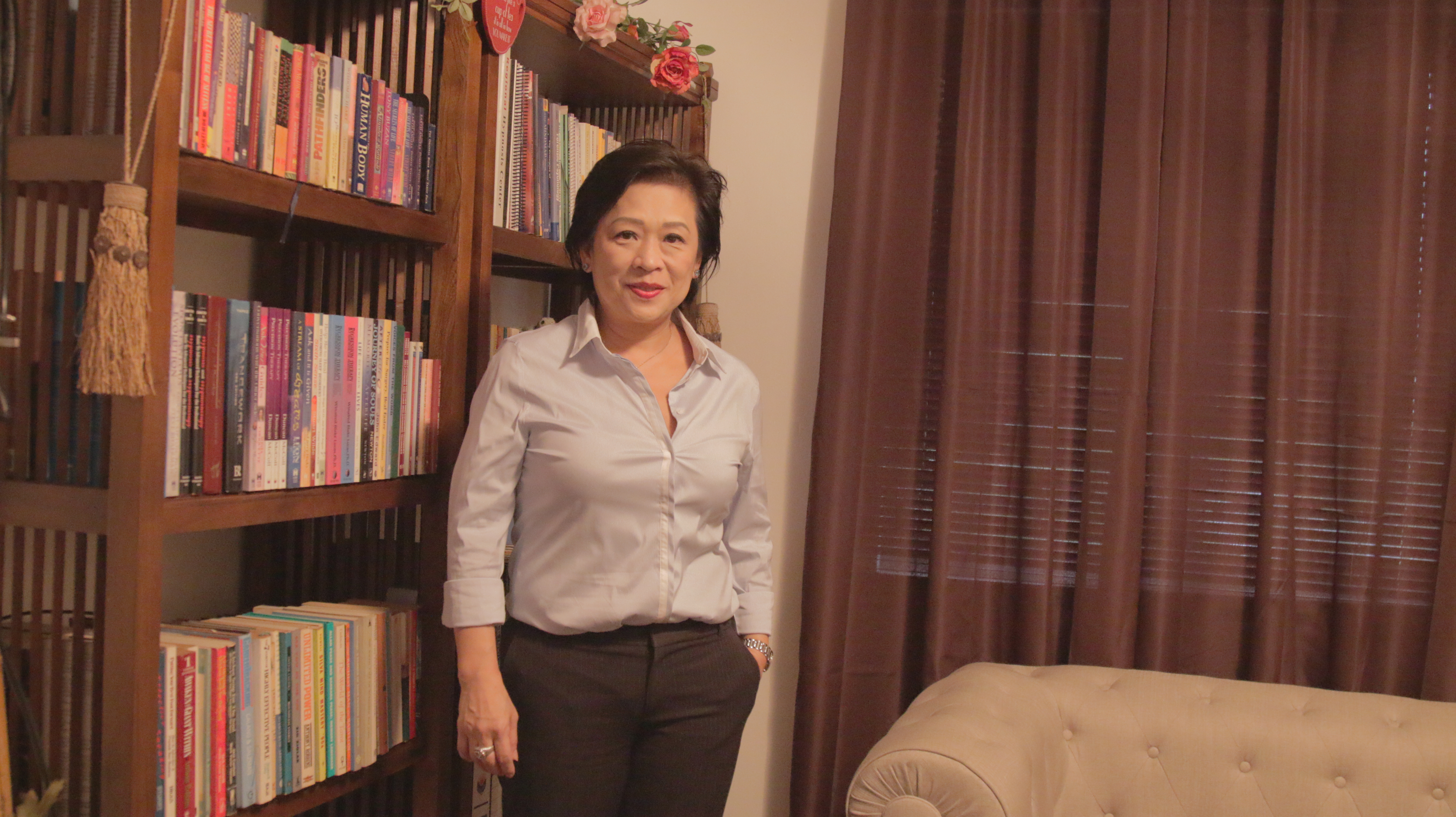“I’ll put it in a very blunt way: The whole world has gotten it wrong.”
This very bold statement comes from Nancy Ho, a practitioner of 25 years in the industry of alternative healing methods.
And what are those methods? Things like Quantum Touch, Tarot card reading and... hypnosis. Yes, stay with us.
Of course it's easy for someone who has never opted for alternative healing methods to dismiss them as “pseudoscience”.
Nonetheless, during my interactions with Ho, she definitely seemed earnest and sincere in doing what she could to help an individual with what she believes can remedy what mainstream healing methods cannot.
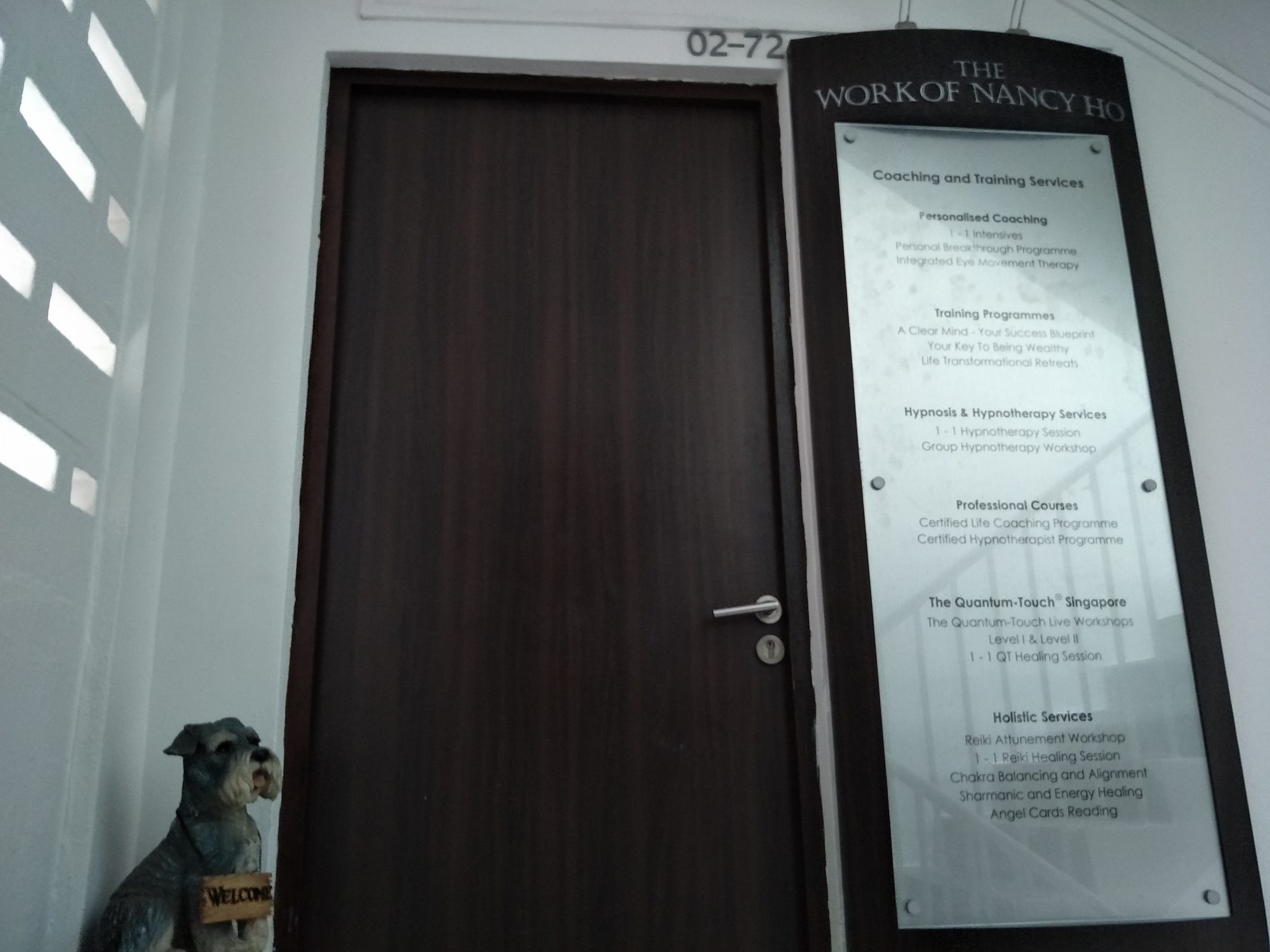 Photo by Yeo Kaiqi
Photo by Yeo Kaiqi
Right before stepping into her office, a board advertising all the services she offered showed the extent of her expertise, ranging from hypnotherapy services and life coaching programmes, to energy healing and card readings.
And as I stepped into her workspace, I was greeted with a range of books that demonstrated her diverse knowledge in alternative healing methods, from ‘Regression Therapy’ to ‘Anatomy and Physiology’, and from ‘Sixth Sense’ to ‘The World of Tarot’.
The search for more effective methods
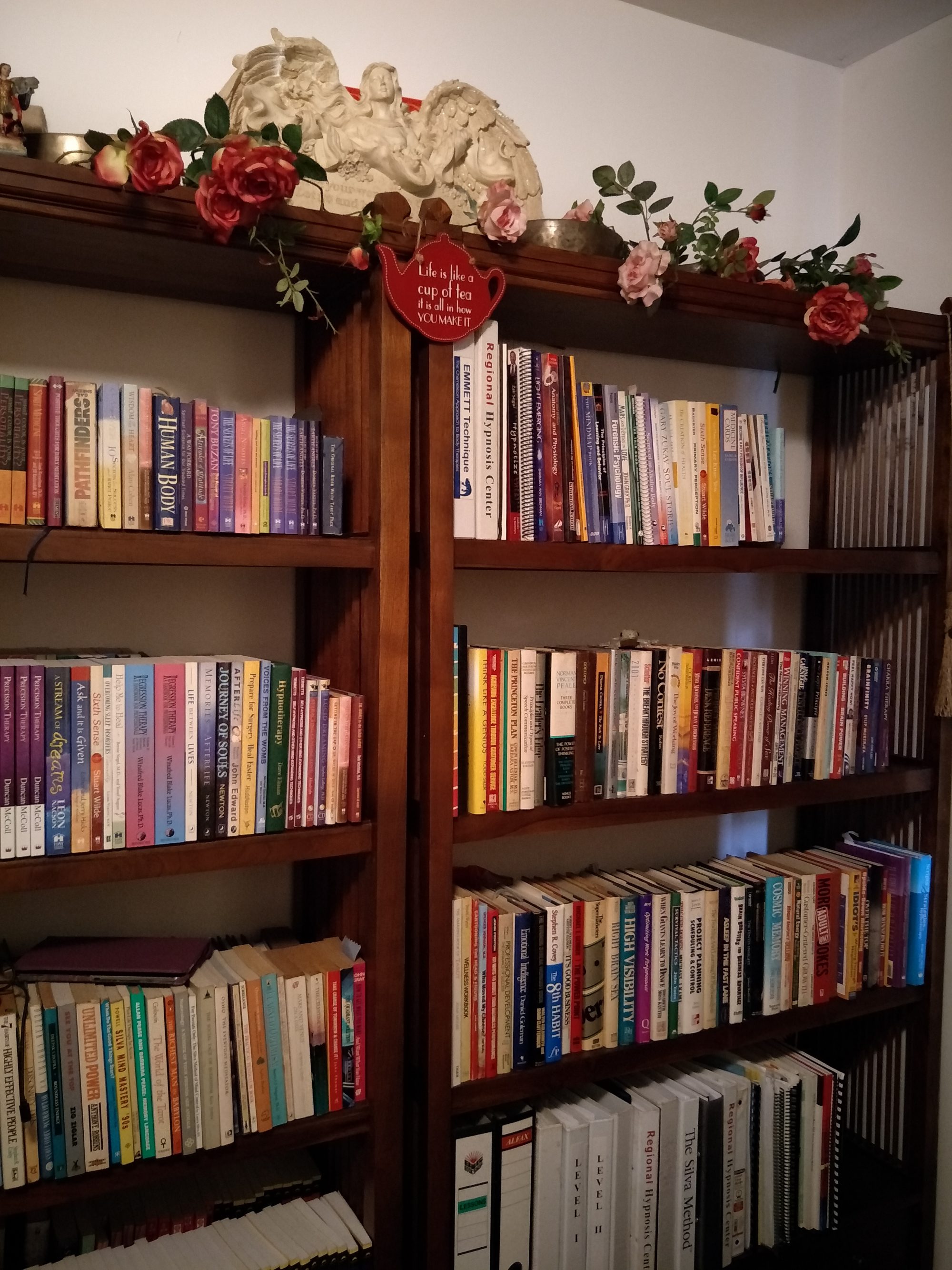 Photo by Yeo Kaiqi
Photo by Yeo Kaiqi
As a soft skills coach prior to her plunge into alternative healing, Ho saw what she perceived to be the ineffectiveness of mainstream methods that led her onto a new journey into the alternative healing industry.
“I find that it’s not effective; people don’t do it anyway. Be it leadership program, be it communications, be it any of that. I find that people don’t do it anyway because they do not know why and what stops them subconsciously not doing it.
So I find that there must be a better way. And what is the better way? Of course it’s the mindset. So it’s the mindset that you have to change... But [if you] change the mindset from the conscious level, it won’t work. You’ve got to change it from the subconscious level. So this is what got me discovering a more effective way than the mainstream methods.”
[related_story]
She also believes firmly that a person’s thoughts dictate their lives:
“If you look at it in school, they reward or punish according to behaviour. Somebody breaks the law, similarly, you punish according to the action. You break the law, either they fine the person, go to jail, or whatever. But the person will do it again.
At the workplace, it’s the same thing. They reward or punish. Punish by shaming the person at the bottom and not at the top. But how many organisations, whether the school or the system, actually understands the thought process? It’s precisely the thought process that affects how a person behaves.”
She also thinks medical fields such as psychiatry does not address the cause of many mental and psychological conditions:
“Somebody comes in with depression. They go to a doctor, a psychiatrist, so they get medication. Does it help? Obviously it helps [by] calming them down with medication. But what caused them to feel depressed? That’s not the way. So when they take medication, you mean that whatever that caused it will go away? It can’t.
Perhaps it will help them to be calmer with the medication so that the bad chemical will not attack them so much, but it’s not true that the cause of the problem goes away.”
And so it was armed with these ideas that Ho ventured into the industry of alternative healing methods. Diving into many techniques in which thoughts come first, Ho started learning hypnotherapy, a healing method that uses hypnosis to treat patients.
Curing from the inside with hypnotherapy
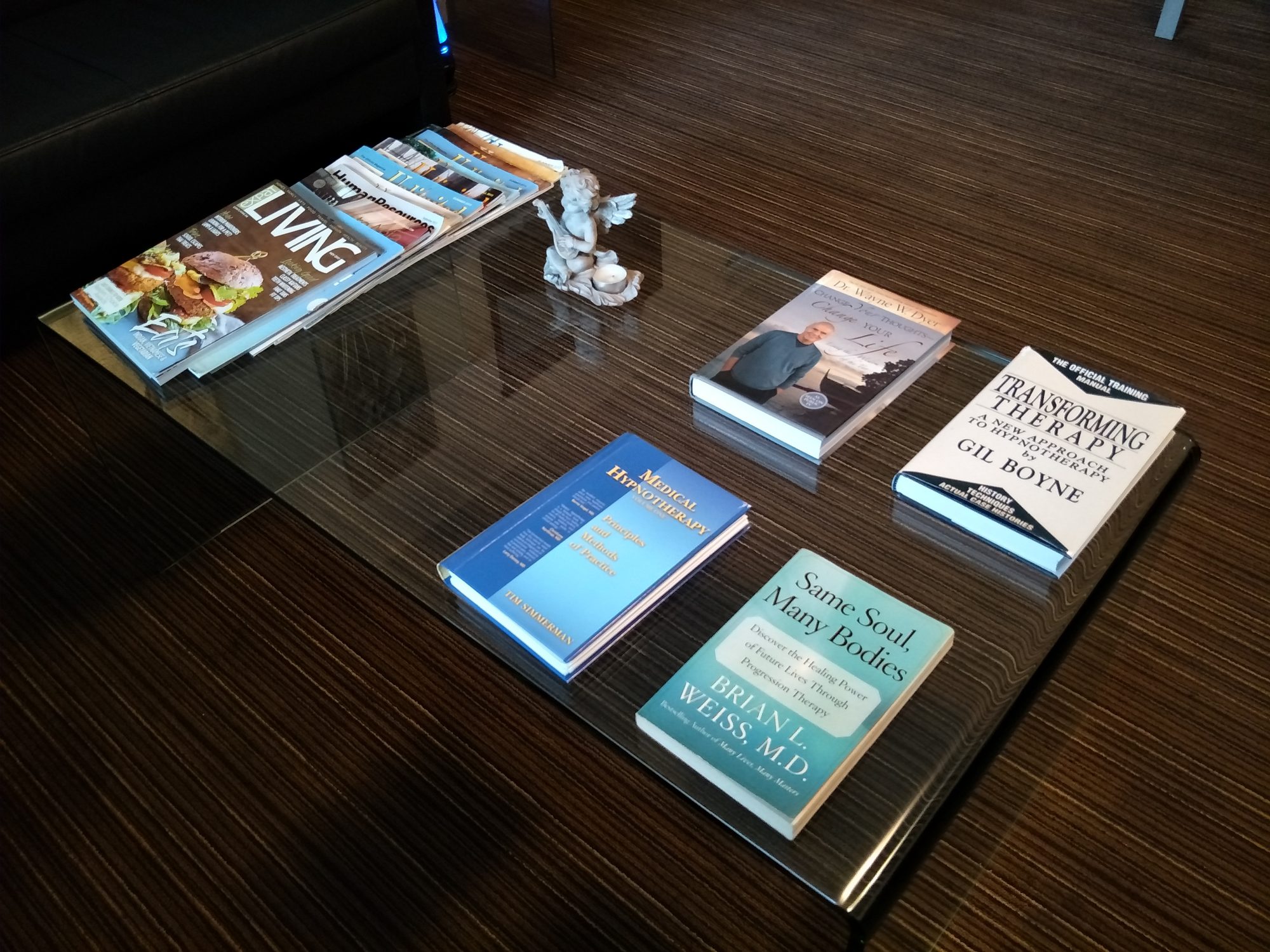 Photo by Yeo Kaiqi
Photo by Yeo Kaiqi
To explain how she got to where she is today, Ho had this to say:
“I find that hypnotherapy is way more effective than any other modality because it accesses the subconscious information — why a person thinks that way. And when you uncover why a person thinks that way, then you can adjust, amend, or shape the thought process.”
So what is hypnotherapy?
She patiently explains (as captured in this video):
Here's how a hypnotherapy session works:
- Ho puts the patient in a comfortable, relaxing position — usually on her recliner.
- She verbally takes the patient through a relaxation technique like breathing, and then she goes into the person's specific difficulty — if it's about positive suggestions, she gives them, but if it's about regression, she does a "depth test" that involves an "eye lock" or an "Arm Drop", both of which are hypnotherapy techniques.
- She then gets the patient to count backwards until the number he or she is counting from disappears — this state, she labels as a very "let go' state.
In this state, Ho leads a person to feel a particular emotion, for instance a fear of cockroaches. She highlights the fear, puts the person in an earlier period in their lives when they experienced it, and then work toward the root behind that trigger.
She then uses several techniques like positive suggestions to help the person not to be overwhelmed by the emotion when reminded of it by other people.
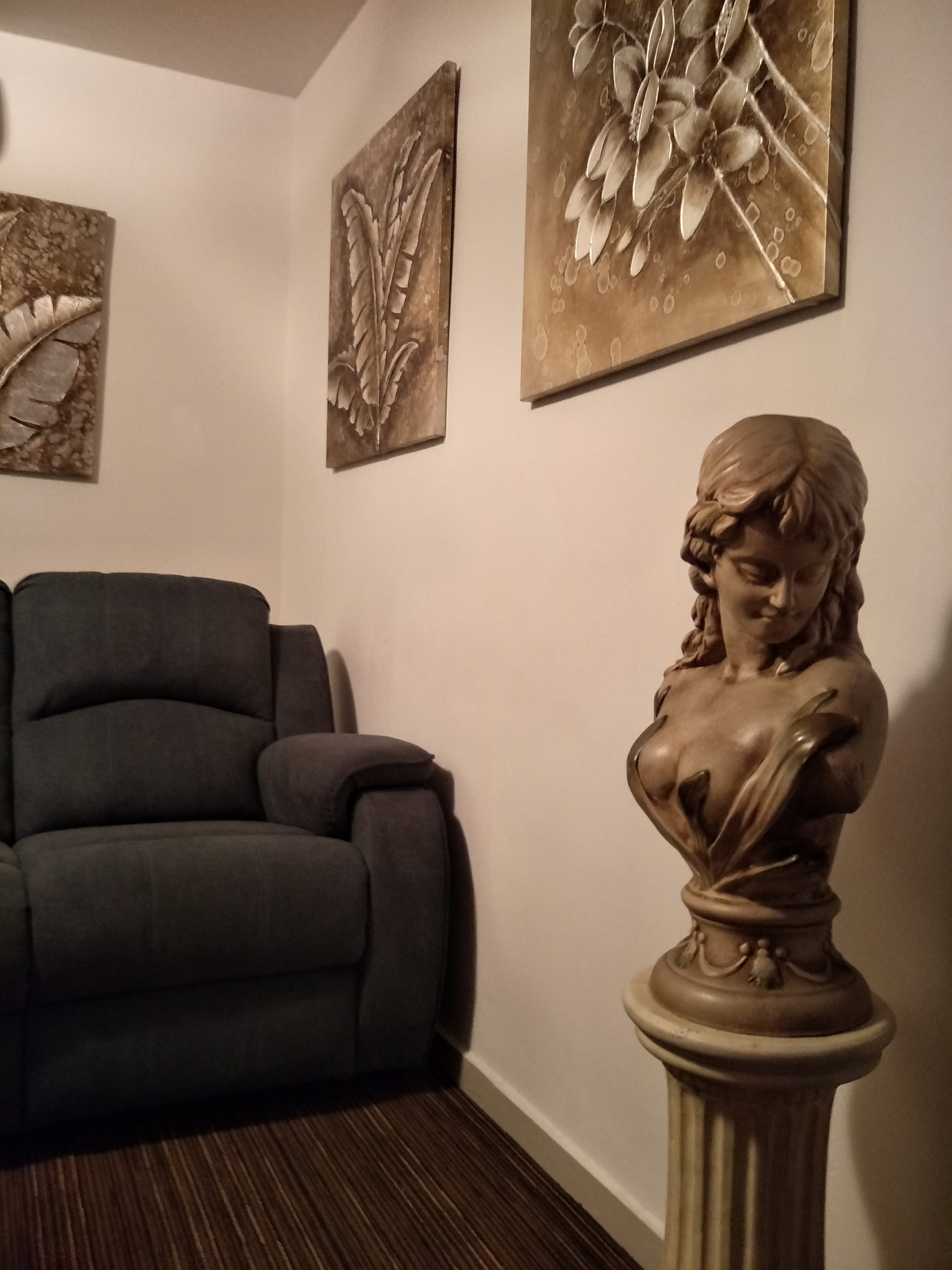 Photo by Yeo Kaiqi
Photo by Yeo Kaiqi
A session like this takes Ho anywhere between 45 minutes to an hour, and depending on the severity of the case and the specific individual, Ho says one's recovery period can take a month or even a year, and sometimes even longer.
Ho also provides a maintenance program for about six months to ensure that her clients have fully recovered and moved on without the need for her support.
Tackling many — but not all — issues
Ho’s technique sounds simple enough, but she tells me it has been profoundly effective in alleviating a diversity of problems her clients faced over the years.
Mild or serious, no matter — Ho says her clients, aged between their mid-30s and 50s, come from different walks of life, are divided equally in terms of gender and can be both local or foreign.
A "milder" case for her is a person with obsessive behaviours, such as eating, shopping, or gaming too much. Some also approached her for help with kicking a smoking habit.
More serious cases, she explains, include chiefly trauma from past experiences — the divorce of a person's parents for instance, that some adults feel they have not moved on from decades later.
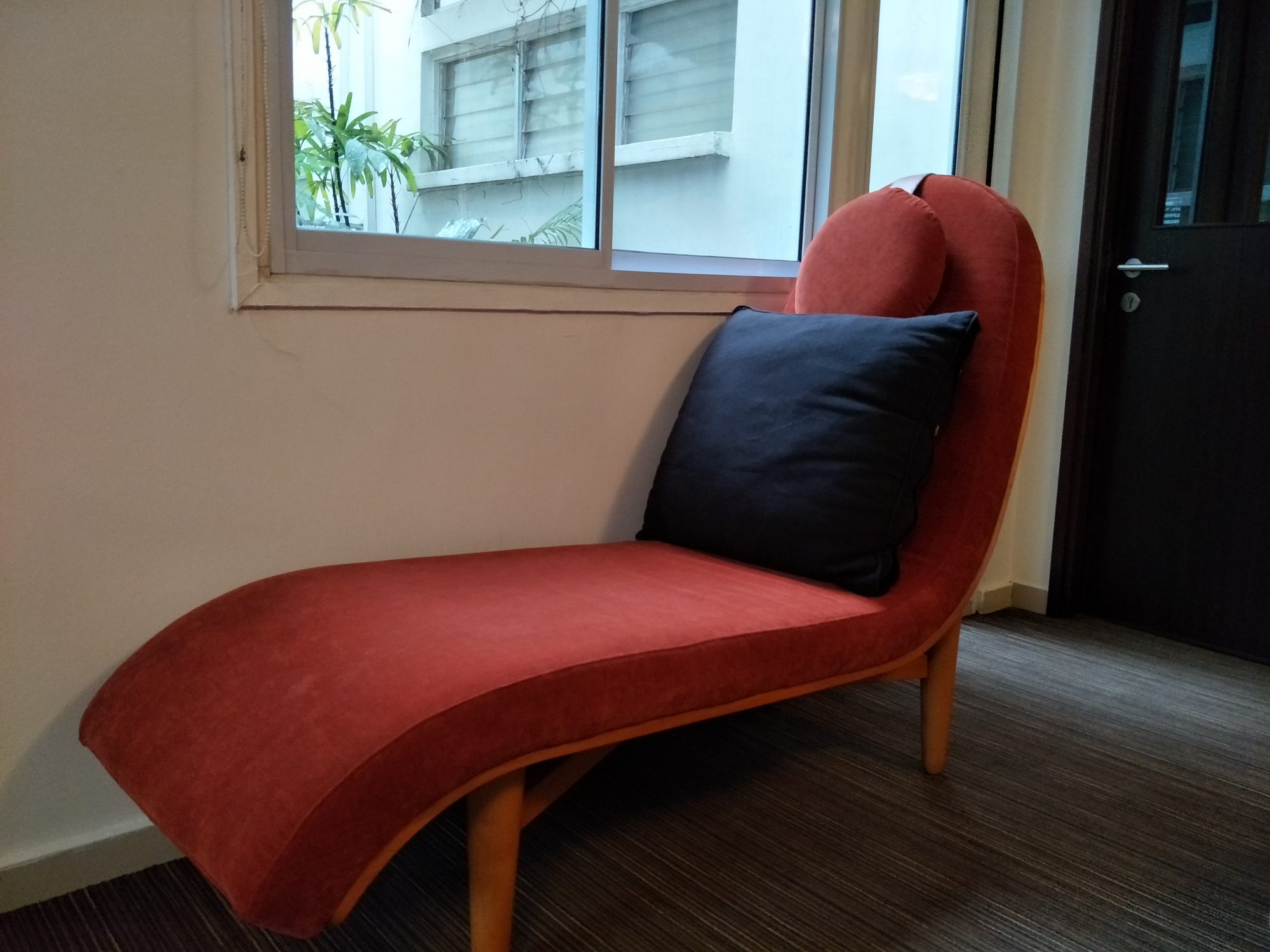 Photo by Yeo Kaiqi
Photo by Yeo Kaiqi
What's the most common problem her clients come to her with, then? Relationships.
Ho describes it as “the most painful thing”, to hear her clients confide in her that they “don’t know where it’s going, they feel stuck, they feel trapped, [and they wonder:] should they quit, or should they stay?”.
Not a doctor
All this notwithstanding, Ho stresses that she does not mean that mainstream methods of healing psychological conditions are not reliable.
She emphasises that she is not a doctor, and that she will never make her client stop any medication from mainstream healing methods, if they may at the time be taking any.
“As long as they are human beings with problems — normal people with everyday problems — that's where I'm able to help.”
Quantum-Touch, angel card reading & sharing her craft
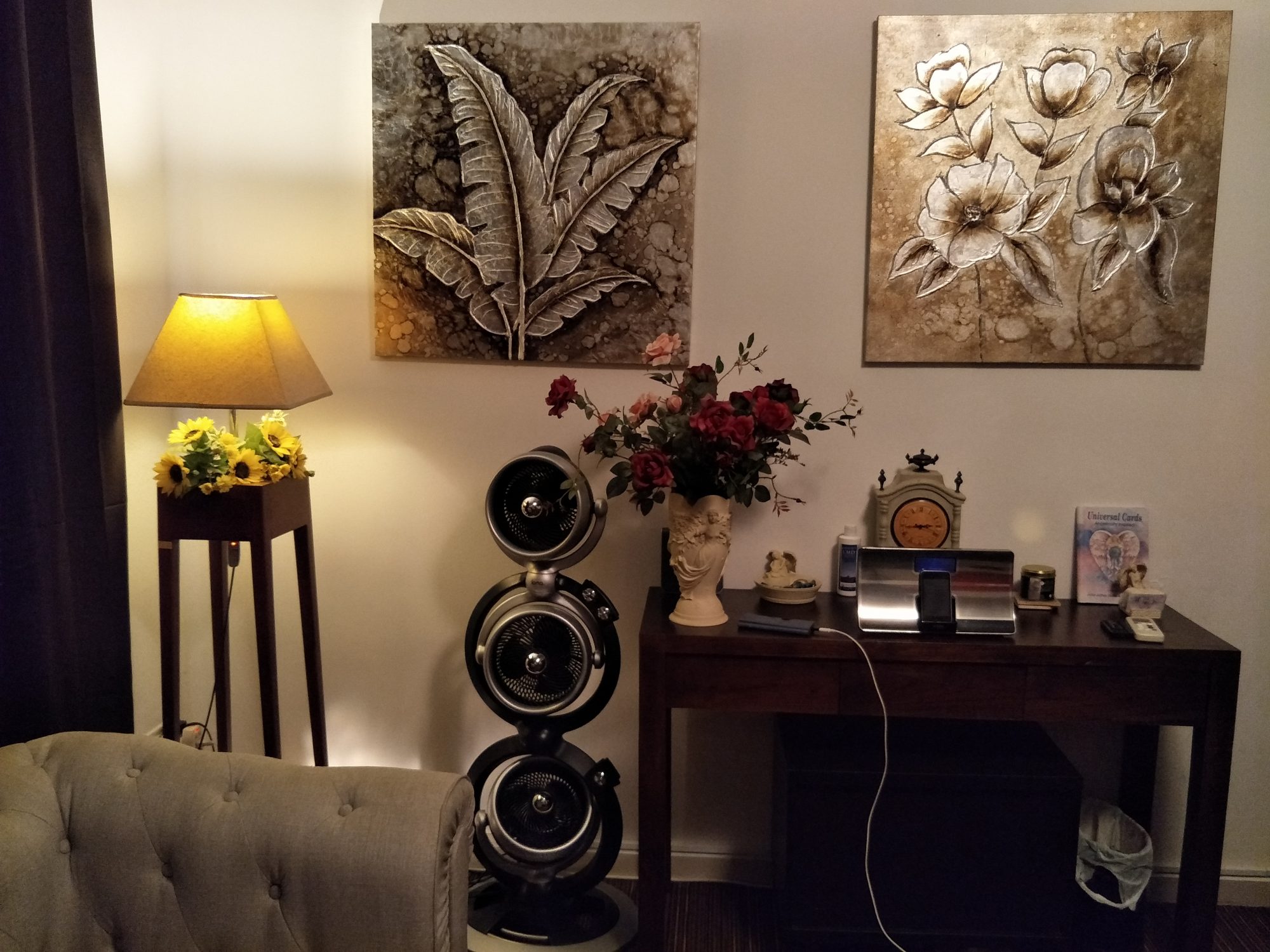 Ho's office is as whimsical as it is relaxing, in terms of its atmosphere. Photo by Yeo Kaiqi
Ho's office is as whimsical as it is relaxing, in terms of its atmosphere. Photo by Yeo Kaiqi
Ho takes great pride when her clients recover from the problems they come to her with, recounting, for instance, how a client who went to her with a marriage problem told her (after going through her sessions) that she had “saved [his] marriage”.
As helpful as Ho finds hypnotherapy to be, she also says each individual has a unique issue that requires a unique solution, which is why she also provides various other otherwise-similarly-dodgy-sounding services, like angel card reading and energy healing.
Quantum-Touch: harnessing a person's own energy to heal
Quantum-Touch, for example, is a hands-on healing technique that was created by one Richard Gordon. It claims to use natural energy that we all have to provide physical, mental and emotional relief and healing.
“If you break down our body — molecules, atoms, subatomic, cells, energy — at the end of the day, what our eyes look at is physical, but actually what it is is energy.”
She explains this further:
“I can learn to use [Quantum-Touch] for myself or I can learn to use it and help someone else. Anybody can. It’s a set of techniques to raise the person’s energy — let’s call it vibration — so when we have higher energy, the body heals itself.”
Ho argues that the idea of Quantum Touch stems from the principle that the body ultimately has to heal itself from most of the ailments it is ever afflicted with:
“All healing is self-healing. So if somebody says, I can heal you, [it’s a] no. They can facilitate the healing, that’s true. But they cannot heal you. The person has to heal themselves.
Even if you cut yourself, a deep cut, you get stitches, at the end of the day, what happens? Your body heals itself.
A person goes for operation [for] whatever reason that they need, to take out or fix or whatever, the body still has got to heal itself. There’s no operation that can heal the body. You can facilitate whatever is needed to be done for the body, but the body has to heal itself.”
Well, can it heal cancer, I asked. Ho responded that she "would not claim" that to be the case. She says the "energy work" she does cannot kill cancerous cells, but helps to "raise the vibration, so that the brain produces good cells".
“So when the body has more good cells than bad cells, the person is okay.
So [the bad cells] die. The new production of the cells is every 30-120 days, depending on the individual and different parts of the body. And the body heals itself. Our body has that natural mechanism to do its own self-healing.”
Ho also shared that she provides what she calls “mind-body-spiritual solutions”:
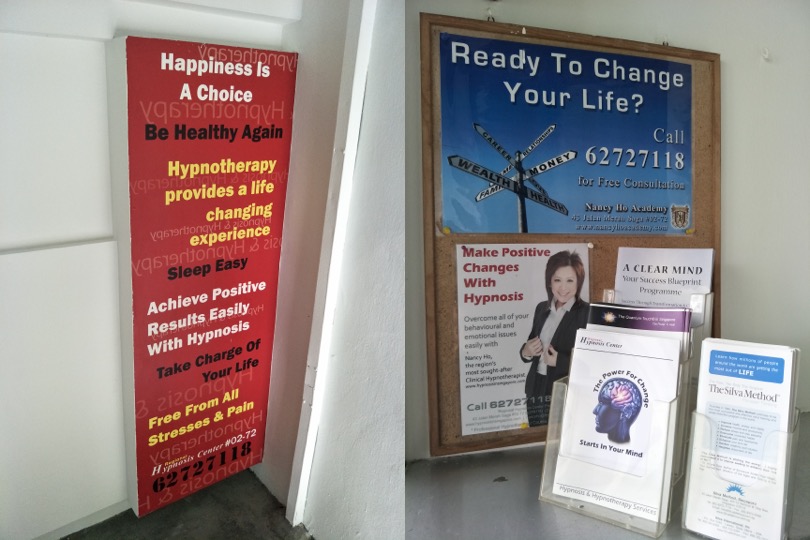 Photos by Yeo Kaiqi
Photos by Yeo Kaiqi
On top of her work in hypnotherapy, Quantum-Touch techniques and card reading, she is also a certified life coach. In the Nancy Ho Academy, she trains others in the various disciplines she has learned and uses in her work.
Still dismissed as a "pseudoscience", but business thrives
Sure, Ho's work continues to be dismissed by many as a "pseudoscience", a gimmick or simply producing a placebo effect, but over the years, she has been able to do this full-time because of a steady stream of Singaporeans who do believe in the efficacy and helpfulness of her work.
And luckily for her, and us, she adds, we live in a country where there is not just a diversity of choices in faiths, but also a wide offering of choices in mainstream medicine, mental healthcare and alternative healing practices.
Ho notes that there are schools and instructors both in Singapore and overseas that one can attend or study under to earn qualification in these healing practices and techniques, and just like how she did, they can also set up businesses and register as private practitioners here.
Dismiss her if you want, but Ho had this interesting take to round off her point:
“I have a couple of neurologists that actually refer their patients to me when they find that it’s not a brain issue, it is the mind issue. It is the make-up of the mind, and not the wiring of the brain.”
Pseudoscience or not, one thing seems certain: As our society matures and becomes increasingly complex, the demand for more, varied options for help will never wane — neither will its supply.
Top photo by Yeo Kaiqi
If you like what you read, follow us on Facebook, Instagram, Twitter and Telegram to get the latest updates.
